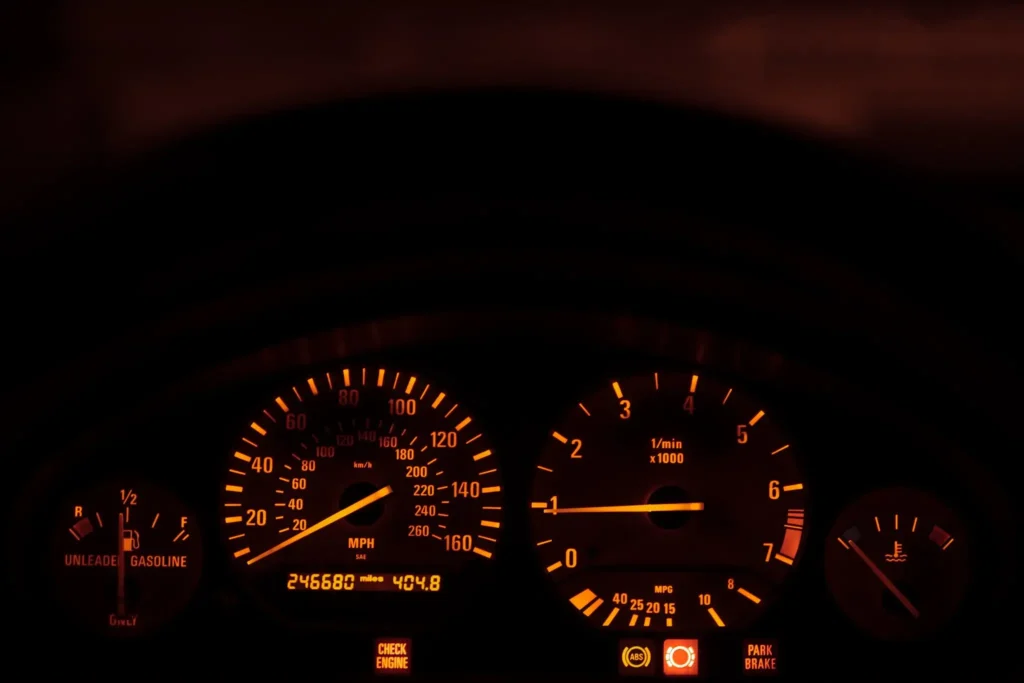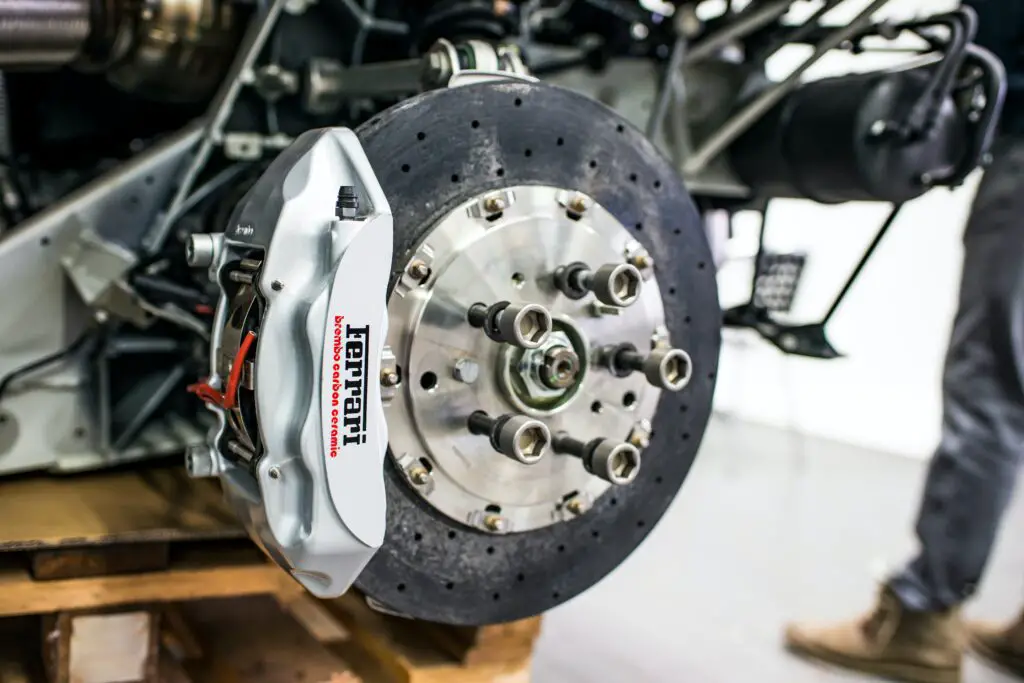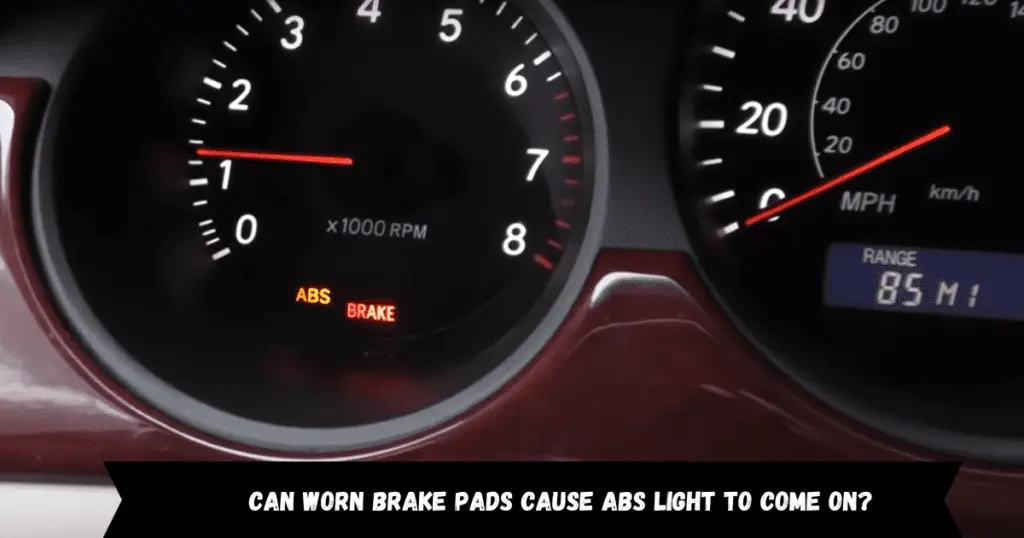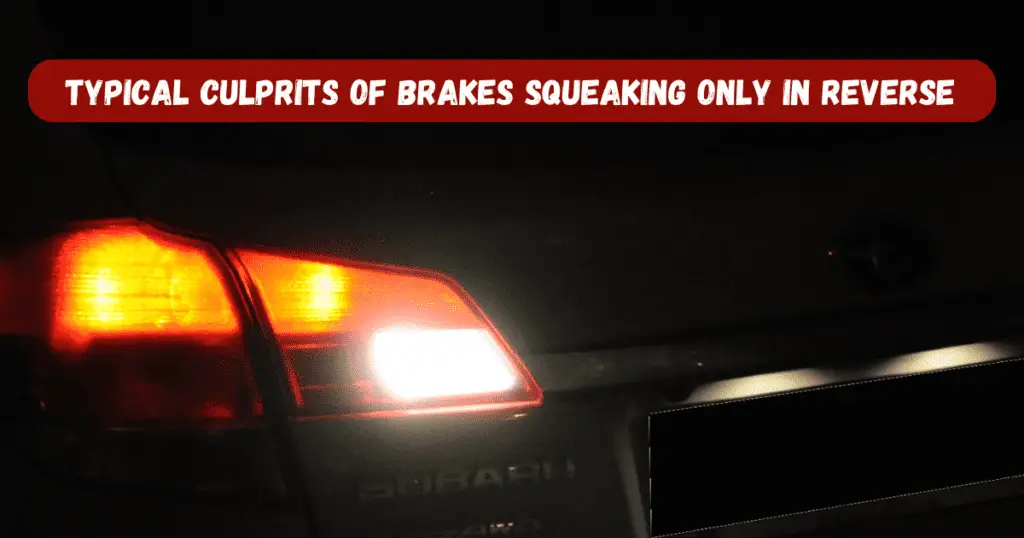Driving in rainy conditions already poses additional hazards, so seeing your ABS warning light illuminated can cause real concern. This vital safety system prevents your wheels from locking up and helps you maintain control of your vehicle, especially in wet weather.
So what causes ABS Light Keep Coming When Driving in the Rain? And is it safe to drive with it on? This comprehensive guide tackles all your questions about dealing with ABS troubles on rainy days.
How the ABS System Works
Before diving into reasons why your ABS light may activate in the rain, let’s review what this system does. The Anti-Lock Braking System is an automated safety feature that pulses your brakes many times per second during hard stops. This prevents wheel lockup, allowing you to steer out of skids.
Here is a quick overview:
- Monitors wheel rotational speed via sensors at each wheel
- Detects when a wheel is about to lock up during braking
- Quickly reduces brake pressure, allowing the wheel to turn
- Rapidly pulses the brakes 5-10 times per second
- Lets you maintain control and maneuverability
During normal operation, you may feel pulsations through the brake pedal. But if the warning light stays illuminated, it means the system is disabled and cannot prevent lockup.
Top Causes of Rain-Related ABS Light Activation
Several issues can cause ABS Light Keep Coming When Driving in the Rain?. Let’s explore some of the most common.
1. Aquaplaning Fools Sensors
Hitting large puddles at higher speeds causes hydroplaning or “aquaplaning” where your tires lose contact with the road surface. If you brake heavily while aquaplaning, it can confuse the ABS sensors.
Since the wheels aren’t turning at all, the ABS thinks it has failed and turns on the warning light. This should resolve after sensor recalibration, but a stubborn light may require an OBD-II reset.
2. Faulty Wheel Speed Sensors
The ABS relies on accurate data from the wheel speed sensors to function properly. These can fail at any time due to mechanical issues or road debris damage.
ABS Light Keep Coming When Driving in the Rain? Most sensor problems happen randomly. However consistent activation of the light in wet conditions suggests moisture is entering a damaged sensor, interrupting signals during rain. Resealing or replacing the affected sensor should solve this.
3. Exposed Sensor Wiring
The wheel speed sensor wires are vulnerable to wear and chafing damage. Once their protective casing splits, water can infiltrate the wiring in wet weather. This causes an immediate short circuit triggering the warning light.
After the wires dry out, the light usually resets after a short drive. Permanently sealing damaged wires with waterproof tape or replacing worn-out sensor cables prevents repeats of this issue.
4. Tire Size Mismatch
Having mismatched tire sizes between axles or even between wheels on the same axle baffles the ABS sensors. Traction differences in the rain can bring any mismatch issues to the surface.
Aligning all tire sizes resolves this. When replacing tires, install a full matching set on all wheels at the same time. Rotating mismatched spares to the drive axle during wet weather could also trigger the light.
5. Loose Sensor Connectors
ABS Light Keep Coming When Driving in the Rain? Like any electrical system, the ABS relies on solid connections to operate correctly. Vibrations over time can loosen sensor connectors triggering intermittent contact issues.
Moisture penetrating these gaps when driving in the rain leads to corrosion buildup. This interrupts signals, activating the warning light. Carefully inspecting connectors and reseating any loose plugs typically resolves this.
6. Low Battery Voltage
Today’s high-tech safety systems require stable electrical power. Bumpy roads in wet conditions create extra load on the charging system. A worn-out alternator struggling to maintain voltage can create faults.
The ABS is sensitive to low voltage conditions which can disable functions and turn on the light. Testing your charging system and battery when issues arise pinpoints any underlying electrical issues.
Does Rain Directly Affect the ABS?
The ABS hardware is designed to operate reliably in all conditions from dry pavement to rain, snow, and ice accumulation. So direct exposure to water does not impact functioning.
However, specific issues like aquaplaning sensor confusion, moisture infiltration of sensors or wiring, and intensified electrical demands can activate the light when driving in the rain. Addressing identified problems corrects this indirect influence of wet conditions on the ABS.

Do you know if Driving with the ABS Light On is Safe?
The short answer is no. With the ABS disabled, you lose its vital traction and control safety benefits which are especially critical when pavement conditions are compromised.
While your base brakes still operate without ABS, you could encounter situations where wheel lockup leads to full skidding with zero maneuverability. Experienced drivers can pump the pedal to simulate ABS. But most motorists lack the split-second reflexes to pull this off.
Safety experts unanimously advise against driving with the ABS light active. The only exception would be an emergency where the risk of stranding outweighs potential traction issues. Please be sure to use extreme caution in these cases and fix the problem immediately after the trip.
Tips for Diagnosing and Fixing ABS Rain Issues
ABS Light Keep Coming When Driving in the Rain? Use these troubleshooting techniques to get your ABS operating properly and keep safety intact:
- Safely road test during wet weather to verify or debunk rain-related activation
- Inspect wheel speed sensors and wiring for visible damage allowing moisture infiltration
- Check all tire sizes match specifications and rotations place mismatched spares only on non-drive axles
- Ensure tight connections at all sensors and electrical junction points
- Follow factory procedures to reset the ABS computer after repairs
- Scan for inactive sensors or other error codes if the light returns quickly
Enlisting a professional technician assists in diagnosis and gets you back on the road safely when do-it-yourself fixes don’t resolve stubborn ABS problems.
FAQs – ABS Light Keep Coming When Driving in the Rain?
Why does my ABS light come on when it rains?
As outlined in this article, common rain-related causes include aquaplaning confusion, water infiltration of sensors/wiring, pre-existing faults intensified by wet conditions, and increased electrical loads.
Does ABS activate in the rain?
Yes, ABS engages even more frequently on wet roads which have less natural traction. However specific problems can still trigger the non-functional warning light during rainfall.
Why does my ABS light come on while driving?
This typically signals a fault in the system disabling the ABS function. Driving in the rain exacerbates some pre-existing mechanical, electrical, and sensor issues. But serious problems get activated at any time, wet or dry.
How do I stop my ABS light from coming on?
Pinpointing and repairing identified faults causing activation stops the bothersome warning light. Thorough inspections during wet weather driving help to diagnose rain-specific gremlins. Resetting the computer after fixes confirms the resolution.
Can I ignore an ABS warning light?
No, driving without a functional ABS significantly compromises safety and should be avoided. Identify and repair the underlying problem immediately to restore full braking capabilities.
Should I be worried if the ABS light comes on?
Yes, the illumination of this vital safety system’s warning light is cause for real concern. The ABS plays a crucial role in preventing dangerous skidding situations. So it requires diagnosis and repair to ensure proper functioning, especially on slippery wet roads.
The Bottom Line -Does ABS Light Keep Coming When Driving in the Rain?
Driving in hazardous rainy conditions makes ABS protection even more crucial. So troubleshooting finicky sensors or electrical issues triggering the warning light specifically in wet weather restores confidence and safety. Identifying and resolving the root cause, whether sensor damage allows water infiltration or another fault intensified by rain exposure stops the bothersome light once and for all.
With a fully functional ABS verified in varying weather conditions, you can traverse stormy roads assured of maximum control when braking situations arise. Stay vigilant following any repairs for quick action if that pesky light rears its ugly head again.





